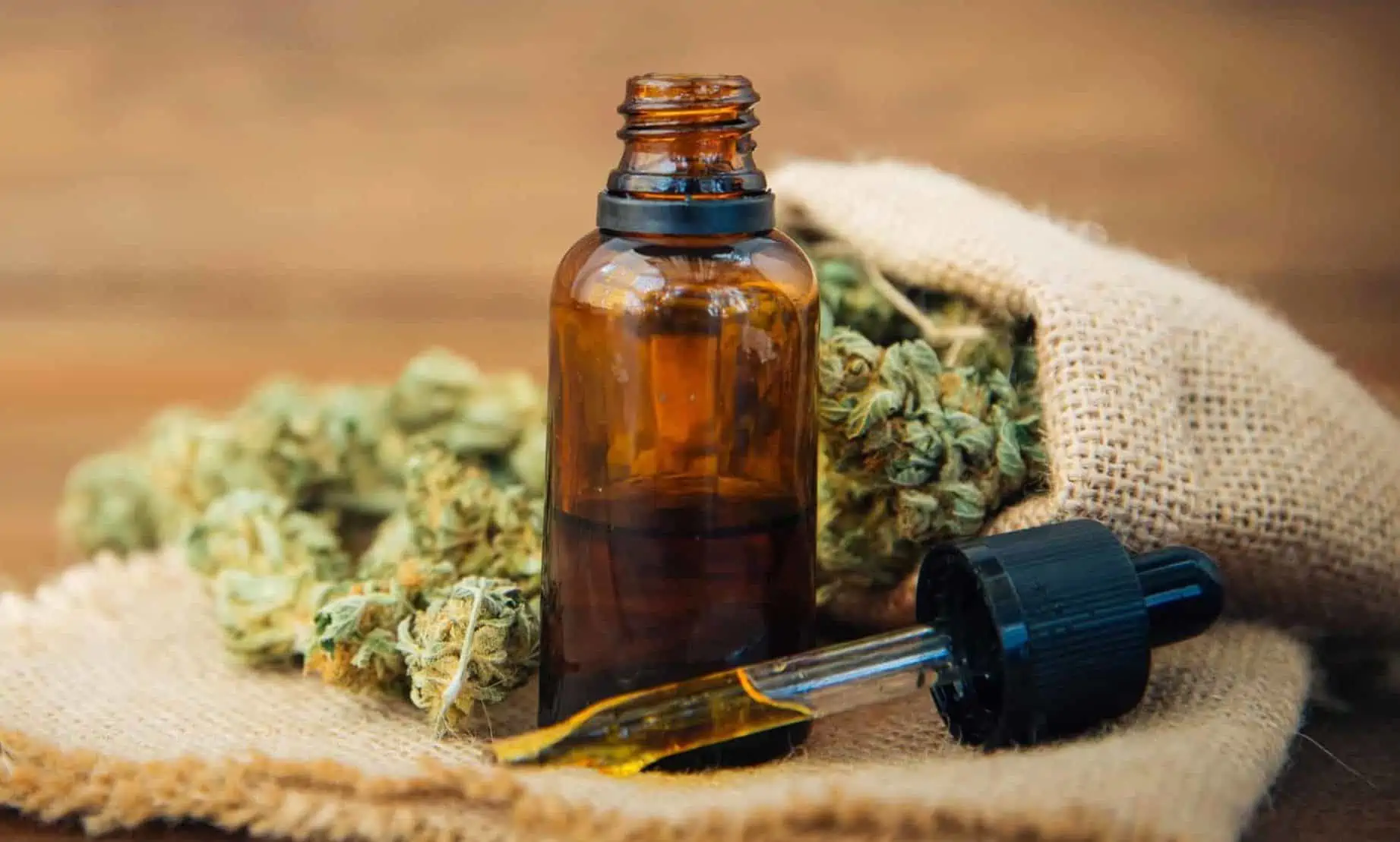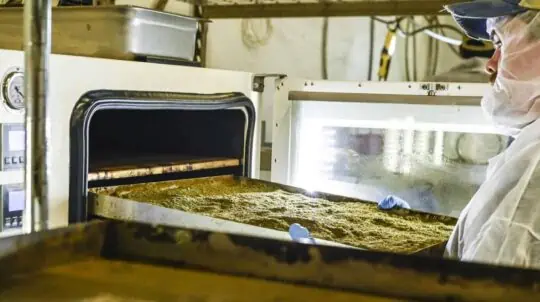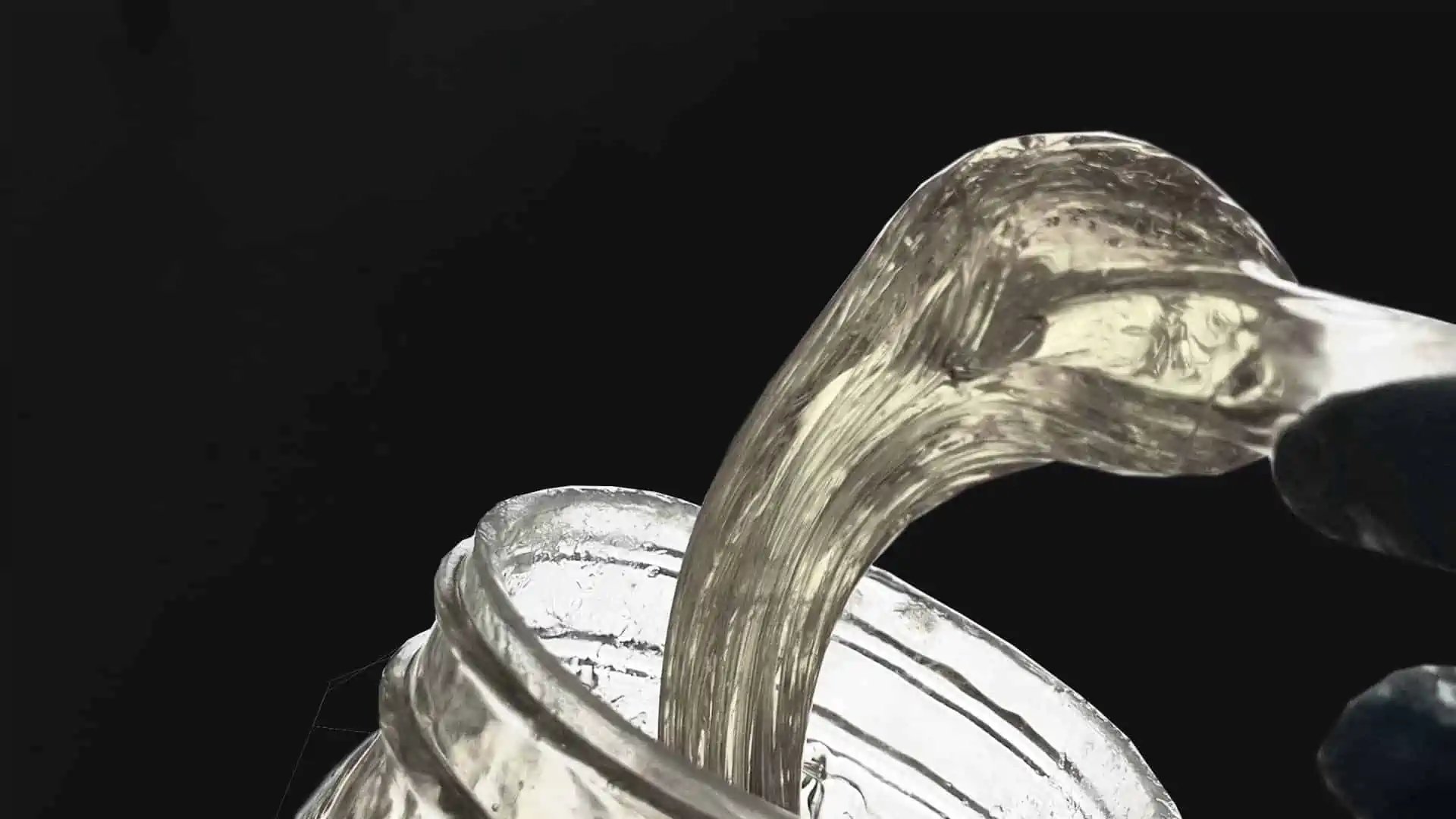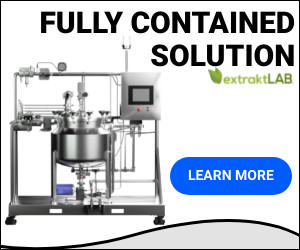What is THCA?
Tetrahydrocannabinolic acid (THCA) is the most prominent non-psychoactive compound found in raw cannabis plant. THCA is the precursor to THC, the well-known psychoactive component of cannabis, and it converts to THC through a process called decarboxylation when exposed to heat.
Studies have indicated that THCA exhibits numerous potential health advantages, including anti-inflammatory and neuroprotective properties. Unlike THC, THCA does not produce intoxicating effects when consumed. Some believe that THCA may have therapeutic effects without the psychoactive properties associated with THC.
Related Post:
THCA Diamonds | All You Need To Know
How to Extract THC-A?
THCA can be extracted from the cannabis plant using various methods:
Supercritical CO2 Extraction
Critical One common technique being supercritical CO2 extraction. This process involves using carbon dioxide as a solvent to extract cannabinoids like THCA from the plant material.Supercritical CO2 extraction is preferred for its ability to produce highly pure extracts without leaving behind any residual solvents, making it a safe and efficient method for obtaining THCA concentrates.
Solvent-based Extraction
Another method for extracting THCA is through solvent-based extraction, such as using ethanol or butane. These solvents are effective at dissolving cannabinoids from the plant material, but they can also extract unwanted compounds along with the THCA. This can require additional purification steps to remove any residual solvents and impurities from the final product.
Rosin Pressing
Some other extraction methods that can be used to obtain THCA include heat and pressure techniques, such as rosin pressing, which uses heat and pressure to extract cannabinoids from the plant material. This method is popular among home processors and small-scale producers due to its simplicity and ease of use.
Overall, there are several methods for extracting THCA from the cannabis plant, with each having its own advantages and disadvantages. It is important to consider factors such as purity, safety, and efficiency when choosing an extraction method for obtaining THCA concentrates.
Related Post:
How To Make Cannabis Oil

Effects and Benefits
Research has indicated that THCA may offer potential therapeutic benefits, including anti-inflammatory, antiemetic, and neuroprotective effects properties. Some studies suggest that THCA could help in managing conditions like arthritis and neurodegenerative diseases.
Additionally, THCA is believed to have antioxidant properties that could contribute to overall health and well-being.
Despite these promising benefits, more research is needed to fully understand the effects of THCA on the human body.
Is THCA Legal?
The legal status of THCA varies depending on the jurisdiction. In many places, THCA extracted from hemp is legal to use as long as it contains a concentration no more than 0.3% THC. However, regulations surrounding THCA from marijuana plants can be more stringent due to its potential to be converted into psychoactive THC.
It is essential to check the local laws regarding the possession and consumption of THCA products to ensure compliance with regulations.
Related Post:
Schedule 1 THC: Current Status & Future Changes
How Does THCA Convert into THC?
THCA undergoes decarboxylation when exposed to heat. This chemical process involves the removal of the carboxyl group in THCA, resulting in the conversion of THCA into THC.
Although decarboxylation can occur naturally during the drying and curing of cannabis plants, it can also be accelerated through methods that involve heat, such as smoking or baking. When cannabis is smoked or vaporized, the application of heat causes THCA to be transformed into THC.
In a similar manner, when cannabis is exposed to high temperatures during cooking, as is the case with creating edibles, the decarboxylation process occurs.
You can see how decarboxylation plays a critical role in the consumption of cannabis, enabling the full effects of THC to manifest. Without decarboxylation, THCA would lack the psychoactive properties commonly associated with THC. Additionally, this process contributes to the distinct aroma and taste of cannabis when it is heated or lit.
By understanding this process, individuals can better control the potency and effects of their cannabis formulations and consumption
Related Post:
A Full Guide for Decarboxylation

THC vs THCA: Key Differences
Chemical Structure And Properties
THC (tetrahydrocannabinol) and THCA (tetrahydrocannabinolic acid) have distinct chemical structures and properties. THC is psychoactive and binds to cannabinoid CB1 receptors and CB2 receptors, whereas the THCA molecule does not bind directly to these receptors. THCA is typically found in raw cannabis and needs to undergo decarboxylation to become THC.
What’s Are The Psychoactive Effects
THC is known for its psychoactive effects, causing a euphoric “high” when consumed. In contrast, THCA is non-psychoactive, meaning it does not induce intoxicating effects. This difference makes THCA an appealing option for individuals seeking the potential therapeutic benefits of cannabinoids without the psychoactive properties of THC.
What’s the Legal Status
Due to its non-psychoactive nature, THCA is often considered legal in more jurisdictions compared to THC. The legal status of THCA can vary depending on its source (hemp or marijuana) and the concentration of THC in the final product. This can be mainly attributed to the 2018 farm bill, where hemp derived products are deemed legal so long as they do not exceed a concentration more than 0.3% THC.
It is essential to be aware of the legal regulations surrounding THCA in your area before using or possessing it.
THCA vs Delta-8
When considering THCA and Delta-8 THC, the primary distinction lies in their psychoactive attributes. Delta-8 THC is a psychoactive cannabinoid known for its more subdued effects when compared to Delta-9 THC, whereas THCA is non-psychoactive in nature.
Each compound possesses distinct qualities and potential therapeutic advantages, offering varied choices for those interested in exploring the properties of cannabinoids. In terms of their chemical structures, THCA is the acid form of THC found in raw cannabis plants, while Delta-8 THC is a close cousin to Delta-9 THC, the primary psychoactive compound in cannabis. When THCA is heated or decarboxylated, it converts to THC, thus becoming psychoactive.
However, Delta-8 THC occurs naturally in very small amounts in cannabis plants and is typically produced through a conversion process of CBD or Delta-9 THC.
Both THCA and Delta-8 THC have potential therapeutic benefits, with studies suggesting that they may help with pain relief, inflammation, nausea, and anxiety. THCA, in particular, is being researched for its anti-inflammatory and neuroprotective properties. On the other hand, Delta-8 THC is believed to have less psychoactive intensity than Delta-9 THC, making it a potentially more attractive option for those seeking a “milder high”.
Related Post:
What is Delta 8 THC? Dr Jon Explains!

THCA vs THCv?
THCA and THCv are unique cannabinoids that have varying impacts on the body. THCA is the precursor to THC, while THCv is known for its potential to modulate appetite and provide therapeutic benefits, offering unique options for cannabinoid-based therapies. THCA (tetrahydrocannabinolic acid) is a non-psychoactive cannabinoid found within in the raw cannabis plant.
When heat is applied to THCA through processes such as smoking, vaping, or cooking, it undergoes decarboxylation and converts to THC, the well-known psychoactive compound responsible for the “high” associated with cannabis use.
THCv, or tetrahydrocannabivarin, is a lesser-known cannabinoid found in some strains of cannabis. It is structurally similar to THC but has different effects on the body. THCv is known for its potential to suppress appetite, making it a potentially useful option for individuals looking to manage their weight or control appetite.
Additionally, THCv has shown promise in treating conditions such as diabetes, PTSD, and Alzheimer’s disease. Research suggests that THCv may have potential therapeutic value for management of obesity and diabetes, making it a potential option for those seeking alternative therapies for these conditions.
As research on cannabinoids continues to grow, it is likely that more applications for these and other cannabinoids will be discovered, expanding the options for cannabinoid-based therapies in the future.
THCA vs THCO?
THCA and THCO are two completely different compounds found in cannabis. THCA is the precursor to THC, while THCO is not a commonly discussed cannabinoid. Understanding the differences between these compounds can help individuals make informed choices regarding cannabinoid consumption.
THCA, or tetrahydrocannabinolic acid, is the non-psychoactive precursor to THC. When THCA is heated or exposed to light, it undergoes a process called decarboxylation, converting it into THC which is the well-known psychoactive compound in cannabis. THCA is commonly found in raw or unheated cannabis products such as fresh flowers, leaves, and stems. It is known for its potential therapeutic benefits, including anti-inflammatory, neuroprotective, and anti-emetic properties.
On the other hand, THCO, or tetrahydrocannabinol-cyclohexanol, is a relatively new and rare cannabinoid that has been gaining attention in the cannabis community. THCO is created through a chemical process involving THC and cyclohexanol, resulting in a compound that may have unique psychoactive effects compared to traditional THC. While limited research is available on THCO, some users report that it produces a more potent high with longer-lasting effects.
It is important to note that the legality and safety of THCO have not been well-established, as it is not a naturally occurring cannabinoid like THC or CBD. As with any new or experimental compounds, caution should be exercised when consuming THCO until further research is conducted to determine its potential risks and benefits.
To summarize, THCA is the precursor to THC and known for its non-psychoactive therapeutic properties, while THCO is a newer compound with potential psychoactive effects that warrants further investigation.
Individuals interested in exploring different cannabinoids in cannabis should consult with a healthcare provider or cannabis specialist to ensure safe and informed consumption.
FAQs about THCA
Q: Is THCa legal?
A: THCA’s legality depends on various factors, including its source and THC concentration. THCA extracted from hemp is often considered legal, provided it meets specific criteria outlined in local regulations. An example of this is in The 2018 farm bill where it allows hemp derived products to contain concentrations no more than .3% THC.
Q: What is the key difference between THC and THCA?
A: The main difference between THC and THCA lies in their psychoactive properties. THC is psychoactive and binds to cannabinoid receptors, producing intoxicating effects, while THCA is non-psychoactive and requires decarboxylation to become THC.
Q: Can THCA get you high?
A: Unlike THC, THCA does not produce the commonly psychoactive effects that cause a “high.” THCA must first be converted into THC through decarboxylation to induce intoxicating effects.
Q: What is the hype about THCa?
A: The growing interest in THCA stems from its potential health benefits without the psychoactive effects of THC. Researchers are exploring the therapeutic properties of THCA, leading to increased discussions and curiosity surrounding its use.
Q: Will you fail a drug test with THCA?
A: Yes. Drug tests typically screen for THC metabolites, not THCA. However, tests will detect THC traces resulting from the conversion of THCA, potentially leading to a positive result. It’s essential to consider potential consequences before consuming THCA products.
Q: Does THCA turn into delta-9 when smoked?
A: When THCA is heated by smoking, vaping, or cooking, it undergoes decarboxylation and converts into Delta-9 THC, the psychoactive compound responsible for the euphoric effects of cannabis.
Q: How does THCA differ from THC?
A: THCA is the acidic form of tetrahydrocannabinol (THC) found in the cannabis plant, and it is non-psychoactive until it gets converted into THC through decarboxylation.
Q: What are the effects of THCA?
A: Research has shown that THCA does not bind to the endocannabinoid receptors in the same way THC does, making it non-intoxicating. However, it is believed to have potential therapeutic benefits.
Q: How does THCA convert into THC?
A: When exposed to heat, either through smoking, vaping, or cooking, THCA undergoes decarboxylation, a process that removes the carboxylic acid group and transforms it into the psychoactive THC.
Q: What are the potential benefits of THCA?
A: THCA has shown promise in providing anti-inflammatory, neuroprotective, and antiemetic properties. It is also being studied for its potential in managing conditions like arthritis and cancer.
Q: Where can one find products containing THCA?
A: THCA is commonly found in raw cannabis flower, tinctures, and certain marijuana products that have not been decarboxylated. It can also be purchased in the form of THCA isolates or concentrates.
extraktLAB has the Extraction Solution You Need
extraktLAB specializes in CO2 extraction equipment. Our high throughput supercritical CO2 extraction machines can produce 600 to 1,200 grams of extract per hour. We offer a variety of options suited to fit your desired level of output. You can view more information by visiting our Supercritical CO2 Extractors page which we have detailed guide about hemp processing, hemp extraction, extraction method and CO2 extraction process.
For more information about any of our products give our sales team a call at 651-600-0036.


